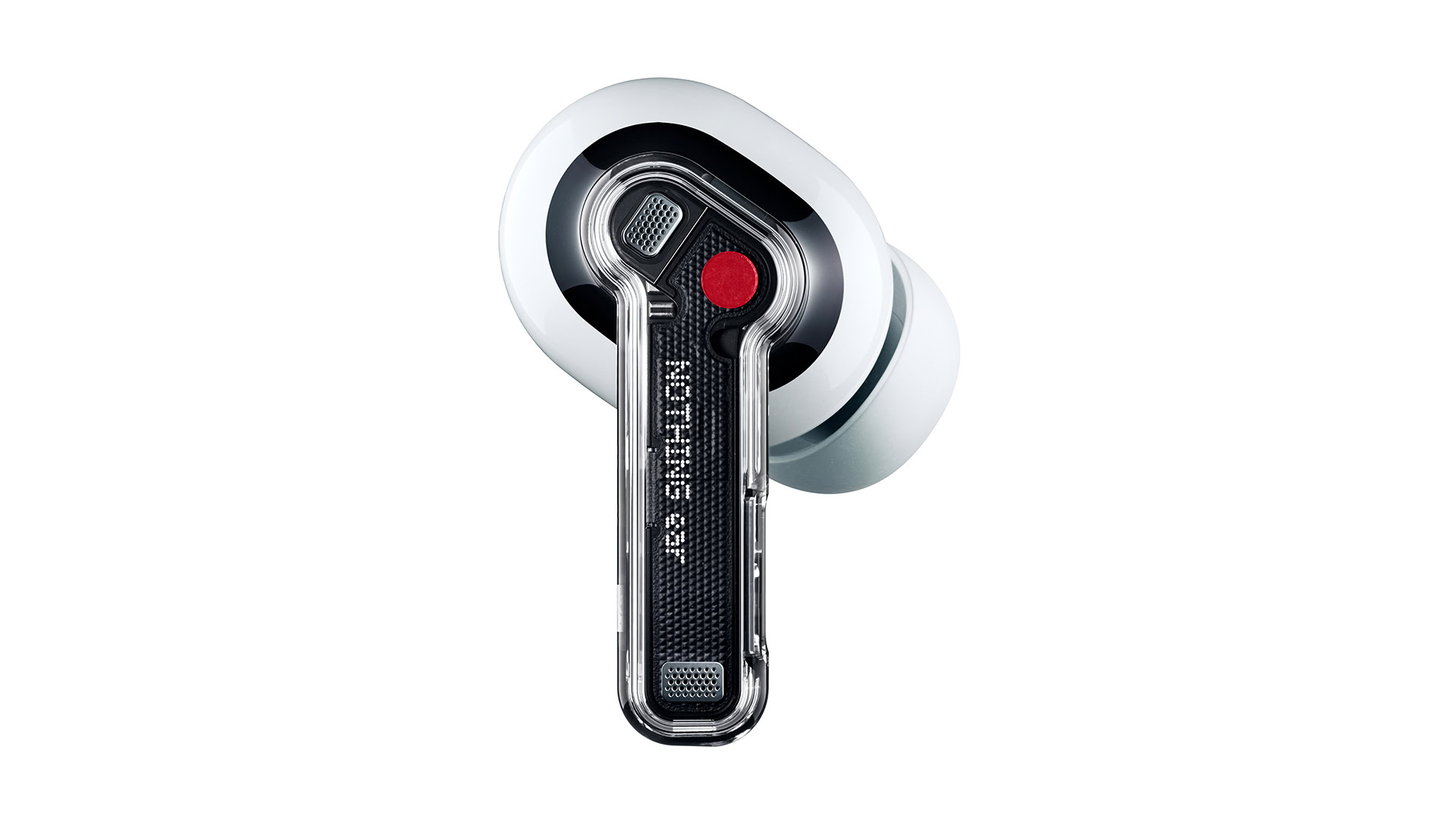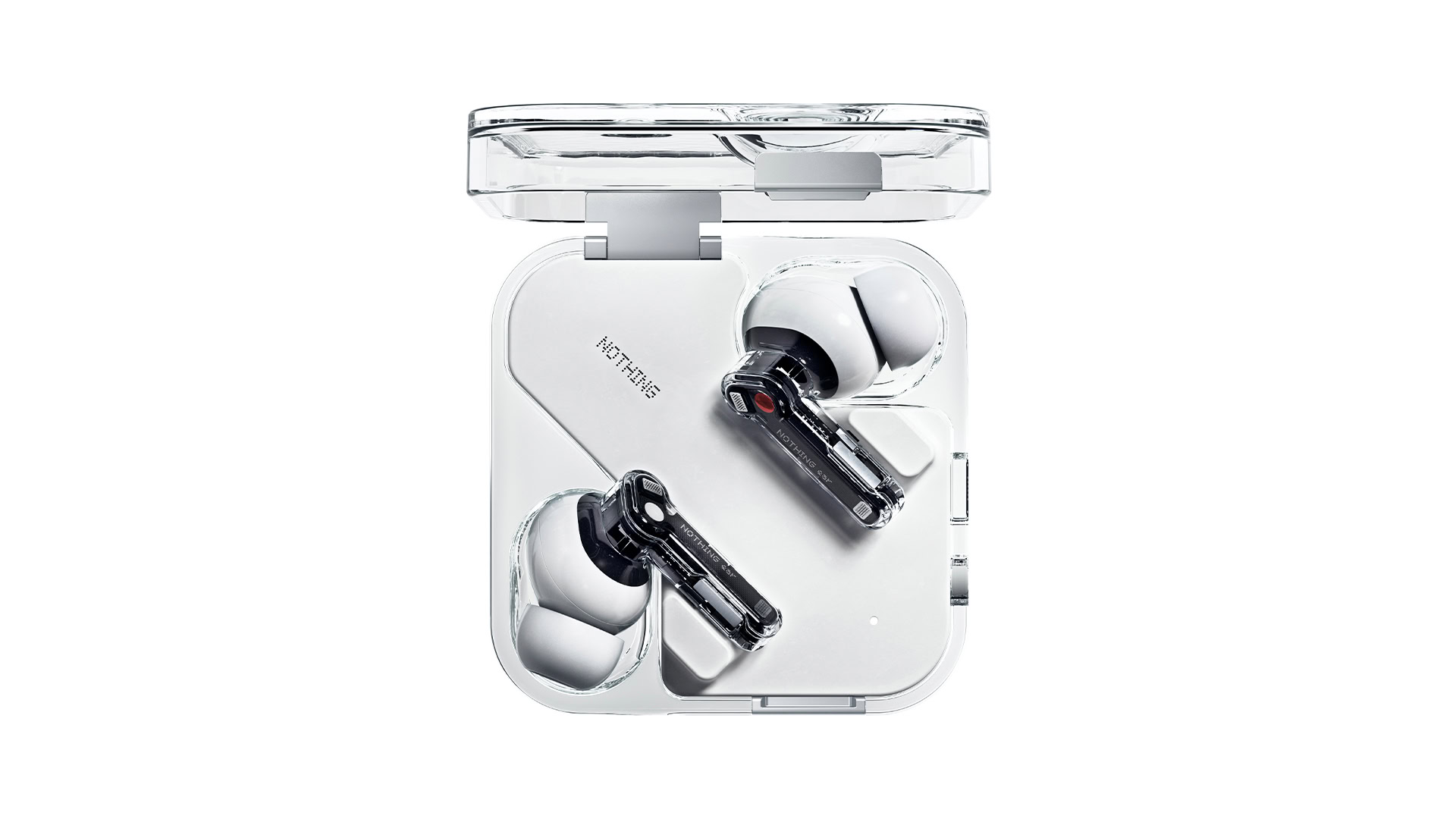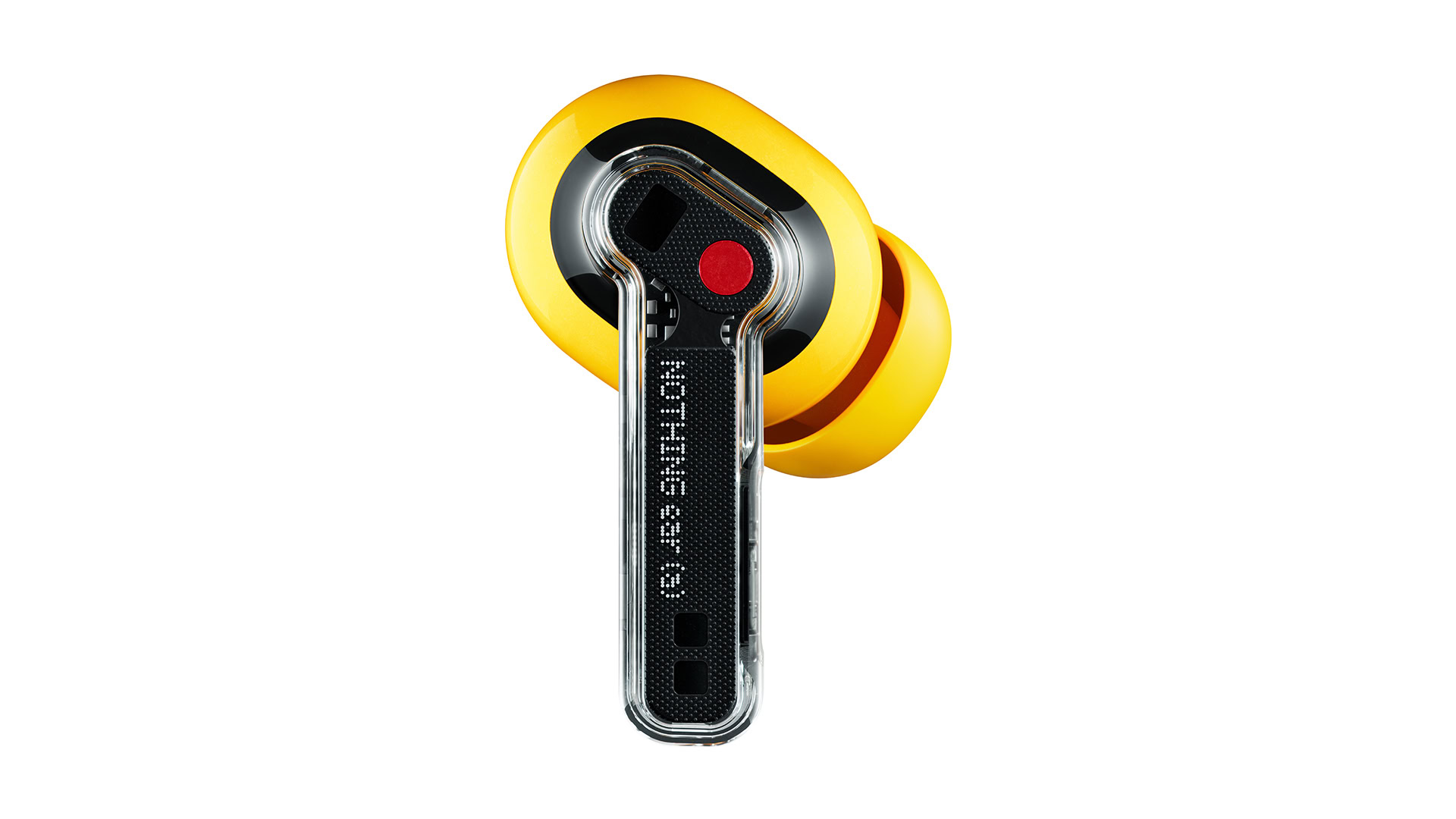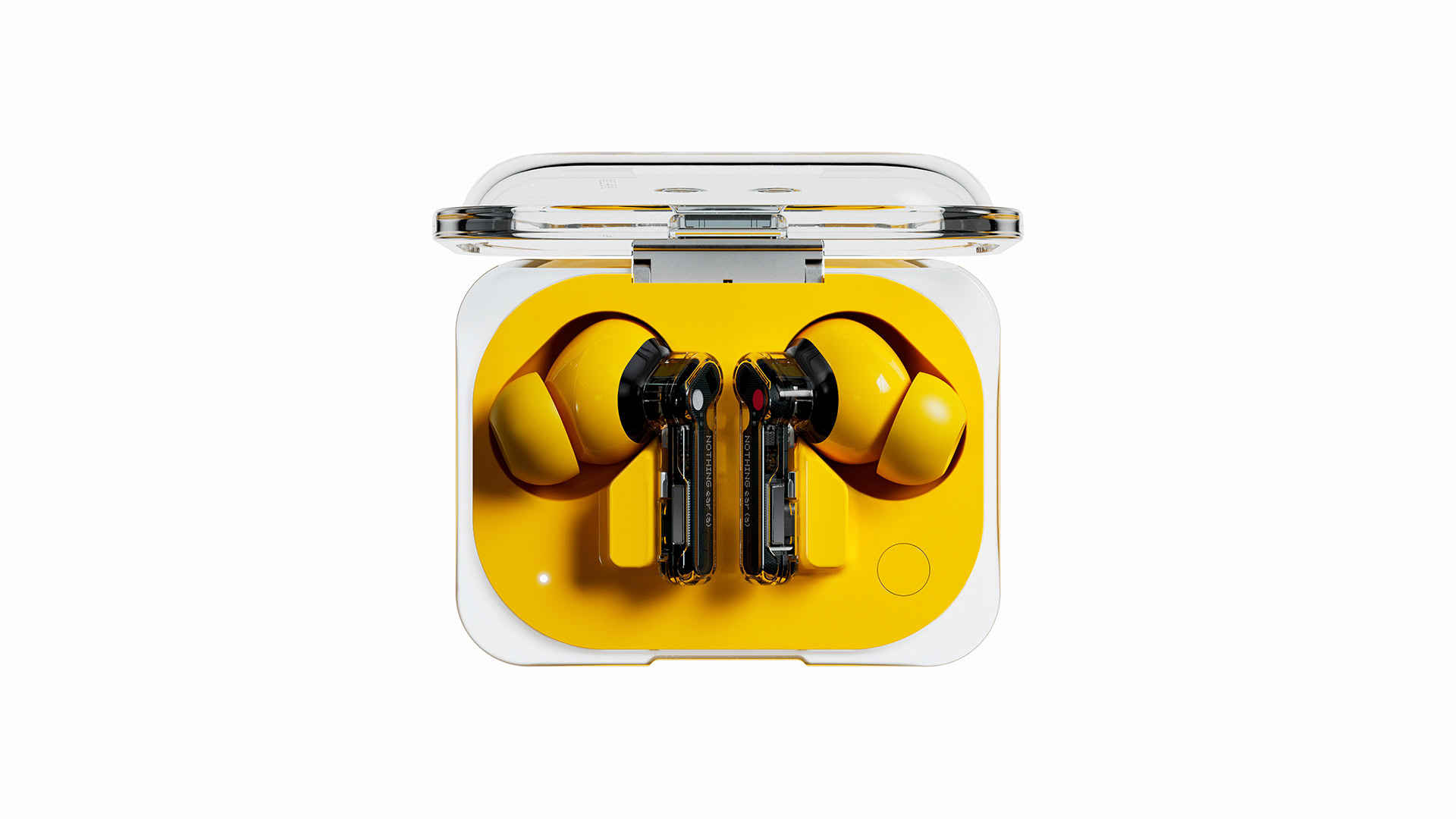All products featured are independently chosen by us. However, SoundGuys may receive a commission on orders placed through its retail links. See our ethics statement.
Nothing releases Ear, Ear (a) true wireless earbuds
Published onApril 18, 2024
- The Nothing Ear is the new top-of-the-line option in Nothing’s stable.
- The Nothing Ear (a) is a completely new entry.
- Both models offer multiple color options.
Busting out two new sets of earbuds, Nothing has announced the Ear and Ear (a) as additions to its lineup. Both sets of earbuds come with latest-gen specs, and have a fair bit to offer users looking to make an upgrade.
The Nothing Ear
The headliner of this release, the Nothing Ear, is a set of lollipop-style true wireless earbuds with top-end specs. Built around 11mm dynamic drivers, these earbuds can connect to your phone via LHDC 5.0, LDAC, or lower-bitrate codecs. Though familiar-looking, the earbuds have added two more vents to improve airflow behind the ceramic diaphragm. The earbuds bear an ingress protection rating of IP54, while the wireless charging case is rated IP55. Though that does not make them waterproof, the earbuds and case should be able to withstand a workout or a surprise rainstorm. Additionally, owners of the Nothing Ear will also be able to use the in-ear detection sensors, Google Fast Pair, Microsoft Swift Pair, and fast charging.

This is a set of earbuds built around a large array of features, and it’s very clear that the inclusion of different listening modes, wireless charging, and Find My support are geared toward meeting users who are accustomed to advanced options. Pairing the earbuds with the Nothing app unlocks an 8-band EQ, Mimi personalized sound profile building, and sharing options that are uncommon in the space — I’ve never encountered being able to share EQ presets with a QR code, anyway. Said EQ offers quite a bit more than your normal 10-slider affair, as the Nothing X app allows you to adjust both center frequency and Q for each adjustment, meaning this is a parametric EQ disguised as a slider-based one. We generally prefer this, as it grants you much greater control over your adjustments.
The Adaptive ANC is where Nothing puts a lot of computing might into, as it uses a library of 28 million sound scenarios to automatically select the correct setting among four levels of ANC for you, depending on your particular surroundings. Nothing boasts that its ANC will be able to attenuate up to 45dB of outside noise; you’ll have to look out for our review to see whether or not this bore out in the lab.

Nothing made it a point to highlight that many of the material choices for this model are more sustainable, such as the use of recycled solder paste, plastic-free packaging, and renewable energy being used for final assembly. This is all good, considering the ephemeral nature of small batteries. A single charge with the Ear is reportedly about 5.2 hours, and a 10-minute top-up with the charging case should net about 10 hours of playback time with the 2.5W quick charge.
The Nothing Ear (a)

Slotting in just behind the Nothing Ear is the Nothing Ear (a) make their name on style a little more than top-end specs, but for the price point they are no slouches. These familiar-looking earbuds use a similar control scheme to the Nothing Ear, and look quite similar as well. Like the Ear, the Ear (a) offers Adaptive ANC, LDAC support, and an 11mm dynamic driver. Additionally, the Ear (a) supports the same cVc 3.0, Nothing X app, and multiple-connection formats. However, there are a number of differences under the hood that are worth mentioning.
Nothing Ear, Ear (a) compared:
| Nothing Ear | Nothing Ear (a) | |
|---|---|---|
Bluetooth | Nothing Ear 5.3. LHDC, LDAC, AAC, SBC | Nothing Ear (a) 5.3. LDAC, AAC, SBC |
ANC | Nothing Ear Up to 45dB | Nothing Ear (a) Up to 45dB |
Earbud dimensions | Nothing Ear 29.4 x 21.7 x 24.1mm | Nothing Ear (a) 30.9 x 21.7 x 24.3mm |
Earbud mass | Nothing Ear 4.6g | Nothing Ear (a) 4.8g |
Case dimensions | Nothing Ear 55.5 x 55.5 x 22mm | Nothing Ear (a) 47.6 x 63.3 x 22.7mm |
Case mass | Nothing Ear 51.9g | Nothing Ear (a) 39.6g |
Battery | Nothing Ear 46mAh per bud, 500mAh case | Nothing Ear (a) 46mAh per bud, 500mAh case |
Wireless charging | Nothing Ear Up to 2.5W | Nothing Ear (a) No |
IP rating | Nothing Ear IP54 buds, IP55 case | Nothing Ear (a) IP54 buds, IPX2 case |
Multipoint | Nothing Ear Yes | Nothing Ear (a) Yes |
In-ear detection | Nothing Ear Yes | Nothing Ear (a) Yes |
Mic NR | Nothing Ear cVc 3.0 | Nothing Ear (a) cVc 3.0 |
For starters, the dual-chamber driver does not use the same ceramic diaphragm as the Ear, but a PMI and TPU diaphragm — not a big deal, but a difference. Next, the ingress protection rating is different, with the buds coming in at IP54, and the case at IPX2. All that means is that you’ll have to be more careful with the case in the presence of water, but that’s really it. Though the Ear (a) offers a slightly higher battery life than the Ear, it comes at a cost of no wireless charging — which may not matter to you. The case still has fast charging at 2.5W, and is plenty sleek-looking with its locking clamshell design.

For those who like to game with their wireless earbuds, the Nothing Ear (a) has a Low Lag Mode available to its users, promising end-to-end latency under 120ms for Nothing phone owners. The phone’s software will automatically trigger this function when it’s in Game mode.
Both the Nothing Ear and Nothing Ear (a) are available now for $149 and $99, respectively. The Nothing Ear comes in white and black variants, while the Nothing Ear (a) is available in white, black, or yellow colorways.